The Google Scripts documentation does not describe any way to retrieve the client's IP address from a Google Apps Script published as a Web App.
Can that be done?
The Google Scripts documentation does not describe any way to retrieve the client's IP address from a Google Apps Script published as a Web App.
Can that be done?
Client access to published Web Apps is channeled through Google's Proxies, so any attempt to get a client's IP will instead report the proxy's IP.
There are no Service APIs that provide a client's IP, but we can use external javascript libraries through the HTML service.
Here is some demonstration code adapted from How to get client's IP address using javascript only?
function doGet(e) {
return HtmlService.createHtmlOutputFromFile('getIp');
}
<script type="application/javascript">
function getip(json){
alert(json.ip); // alerts the ip address
}
</script>
<script type="application/javascript" src="http://jsonip.appspot.com/?callback=getip"></script>
In one test, the alert popped up with 216.191.234.70. Lookup of that IP:

That's definitely not my IP address.
Conclusion: No, you can't retrieve a user's public IP address using Google Script.
The following code will return user's ip:
getIp.html
<!DOCTYPE html>
<html>
<head>
<base target="_top">
</head>
<body>
<p id="ip"></p>
<script type="text/javascript">
var userip;
</script>
<script type="text/javascript" src="https://l2.io/ip.js?var=userip"></script>
<script type="text/javascript">
document.write("Your IP is :", userip);
</script>
</body>
</html>
Code.js
function doGet(e) {
return HtmlService.createHtmlOutputFromFile('getIp');
}
Though you directly just can't get the IP Address of any client via app script as it has to pass through Google proxies but there's a better way to get it via some open geolocation apis.
When using an open geolocation APIs, the client sends a request to these APIs which then returns a response about all the ip and location details of that client which can be pushed to your appscript backend in form of JSON payload.
Here's how I did it using Axios:
const getData = async () => {
axios.get("https://geolocation-db.com/json/").then(response => {
axios({
method: "post",
url: process.env.REACT_APP_SHEETS_URI,
data: {
apiKey: process.env.REACT_APP_SHEETS_API_KEY,
operationType: process.env.REACT_APP_UPDATE_WEBSITE_PING,
operationData: response.data,
},
headers: {
"Content-Type": "text/plain;charset=utf-8",
},
})
.then(function () {})
.catch(function (error) {
console.log("Error Occured = ", error);
});
});
};
And here's my appscript code to handle the request:
const doPost = (request = {}) => {
const { _, postData: { contents, type } = {} } = request;
let query = {};
if (type === 'application/json') {
query = JSON.parse(contents);
}
else if (type === 'application/x-www-form-urlencoded') {
contents
.split('&')
.map((input) => input.split('='))
.forEach(([key, value]) => {
query[decodeURIComponent(key)] = decodeURIComponent(value);
});
}
else if(type === "text/plain")
{
let jsonContent = "Error, Not Able to Parse";
try {
query = JSON.parse(contents);
}
catch(e) {
return ContentService.createTextOutput(JSON.stringify(
{
error: true,
request: "Invalid JSON Request",
msg: "Unable to Parse JSON",
type: type,
requestBody: contents,
requestBodyDecoded: jsonContent
})).setMimeType(ContentService.MimeType.JSON);
}
}
else
return ContentService.createTextOutput(JSON.stringify(
{
error: true,
request: "Invalid Request: Can't Identify the Type",
msg: "Unknown Request Type",
type: type
})).setMimeType(ContentService.MimeType.JSON);
const operationType = query.operationType;
if(operationType === undefined)
return ContentService.createTextOutput(JSON.stringify(
{
error: false,
queryOpsType: "undefined"
})).setMimeType(ContentService.MimeType.JSON);
else
{
const operationData = query.operationData;
const response = handleRequestBasedonOperation(operationType,operationData);
return ContentService.createTextOutput(JSON.stringify(
{
error: false,
msg: response.msg,
fullResponse: JSON.stringify(response),
queryOpsType: query.operationType
})).setMimeType(ContentService.MimeType.JSON);
}
}
else
return ContentService.createTextOutput(JSON.stringify(
{
data: isAuthenticated.data,
error: true,
//request: request,
msg: query.apiKey,
//paramters:request.parameters
})).setMimeType(ContentService.MimeType.JSON);
where handleRequestBasedonOperation handles the operation, you may choose to dump the data into a googleSheet or anywhere else you would like to.